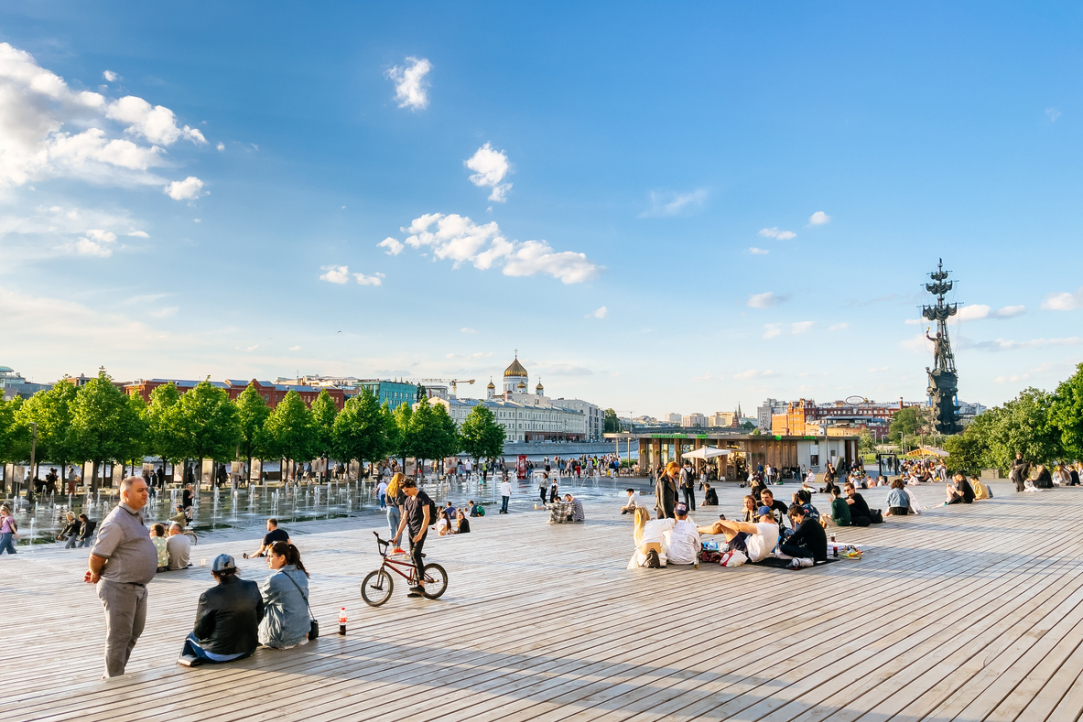
'We Construct a Portrait of Russian Society'
HSE is presenting A Society of Unequal Opportunities: The Social Structure of Modern Russia, a new book whose authors use an original model to paint a collective portrait of Russians in the last decade. IQ.HSE asked Svetlana Mareeva, co-author of the monograph and Director of the HSE Institute of Social Policy’s Centre for Stratification Studies, about the highlights and trends discussed in the book and whether they tend to change in particularly challenging times.

HSE Researchers Identified the Age-Related Changes in Gamma-Band Oscillations in Auditory Cortex in Children
Researchers from the HSE Center for Language and Brain have identified previously unknown age-related changes in brain activity during the perception of auditory information in a group of children aged 7–12 years. The researchers used magnetoencephalography (MEG), an ultra-precise method of brain activity recording. The results obtained can be used to explore the impairments in language comprehension in children with autism. The study was published in the Human Brain Mapping.

Ghosts Full of Life: Spirits and Ghosts in Korean Doramas
South Korean TV series feature a whole typology of ghosts. Alexandra Tarasova, visiting lecturer at the HSE School of Media, Associate Professor in the Faculty of Cultural Studies at the Russian State University for the Humanities, spoke about all main types, their origin, features and behaviour of ghosts at the first open seminar to be held as part of the ‘Media Culture of East Asia: Discourses, Industries, Fandoms’ project.

Card Index: Joint Attention
As a rule, people look immediately and automatically in the same direction when their companion or someone nearby suddenly turns their attention. And it seems rather obvious. In fact, joint attention is an ability that helps people in many areas, such as communication, collaborative activities, etc. But sometimes a person can be deprived of it. We analyse this phenomenon — what is joint visual attention, cases in which this mental function can be disrupted, and what remains a mystery for scientists — in IQ Card Index with the help of HSE researchers Tatiana Shevel and Maria Falikman.

HSE Researchers Develop New Method for Analysing Genetic Admixture of Populations
Researchers of the HSE International Laboratory of Statistical and Computational Genomics together with their international colleagues have proposed a new statistical method for analysing population admixture that makes it possible to determine the time and number of migration waves more accurately. The history of Colombians and Mexicans (descendants of Native Americans, Spaniards and Africans) features two episodes of admixture that occurred about 350 and 200 years ago for Mexicans and 400 and 100 years ago for Colombians. The results were published in the Plos Genetics journal.

Study Helps Explain Why Students Cheat
Evgeniia Shmeleva and Egor Sagitov of the HSE Institute of Education examined the relationship between how study sessions are designed and the likelihood of students’ cheating. They found students more inclined to cheat when expected to learn by rewriting and retelling the study material and more likely to be honest when engaged in interactive learning activities such as debates.

Media Portraits of High-Achieving Women
Women who have made it to the top in business often look back to analyse what has helped — or hindered — their advancement in this highly gendered environment. Shared through mass media, their reflections can provide helpful guidance to other aspiring businesswomen on what it takes to succeed. HSE sociologists have examined relevant media discourse and identified ten key factors of women's business leadership.

Professional Athletes Perform Better against Former Clubs, According to Research
A team of Russian researchers affiliated with the HSE University, RANEPA, and NES found professional athletes to perform better against their former clubs. At least in some circumstances, emotions seem to have a greater effect on their performance than knowledge of the opponent's tactics. The study's findings are published in the Journal of Behavioural and Experimental Economics and may be useful for coaches, sports managers, and bookmakers.

Early-Career HSE Researchers to Attend Neuroscience School
Two of the winners, Konstantin Sorokin, doctoral student and visiting lecturer of the HSE Faculty of Computer Science and research assistant at the HSE International Laboratory of Algebraic Topology and its Applications, and Daria Kleeva, doctoral student of the HSE Faculty of Social Sciences and research assistant at the HSE Institute of Cognitive Neuroscience Centre for Bioelectric Interfaces, spoke to the HSE News Service about why attending the School matters so much for them.

HSE University Announces Results of Mirror Labs 2022 Competition
The Mirror Labs research project competition is aimed at HSE University departments that are planning to conduct joint studies with other Russian universities and research centres. The competition is now in its third year. A total of 19 academic organisations from 14 regions of Russia submitted applications as partners of HSE University, including 9 organisations participating for the first time.


Registration is open upto December 10, 2025